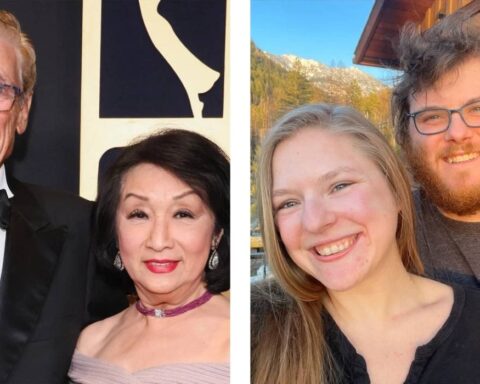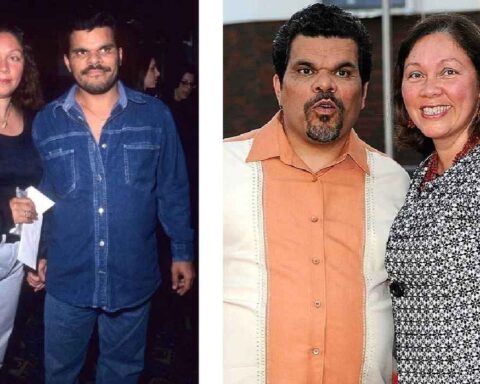In the age of information overload and constant connectivity, it’s rare to find a name that sparks curiosity without already being splashed across news headlines or viral videos. And yet, Ashley Anderson has managed to maintain a unique position—she’s someone who has impacted many, drawn admiration from peers and professionals alike, and yet remains largely unknown to the general public. It’s this paradox that makes her so intriguing. Who is Ashley Anderson, and why are more people asking that very question? While she has not actively sought the spotlight, her influence is undeniable in the fields she touches, whether in education, advocacy, or community development.
Quick Bio
| Detail | Information |
| Full Name | Ashley Anderson |
| Gender | Female |
| Date of Birth | July 27, 1994 |
| Place of Birth | Kansas, USA |
| Age | 30 Years |
| Zodiac Sign | Leo |
| Sexual Orientation | Straight |
| Nationality | American |
| Ethnicity | White |
| Marital Status | Married |
| Husband | Dan Avidan |
| Children | None |
| Height | 5 feet 6 inches |
| Weight | 55 kg |
| Hair Color | Blonde |
| Eye Color | Grey |
| Profession | Director & Writer |
| Net Worth | Not Publicly Disclosed |
A Grounded Beginning
Ashley Anderson’s story begins in a modest, tightly-knit community nestled in the suburban heartland of America. Unlike many whose careers are built on elite platforms or well-connected networks, Ashley was raised by working-class parents who instilled values of perseverance, education, and humility. Her early years were shaped by simplicity and sincerity. Summers were spent in local libraries and community parks, not exotic destinations. Weekends involved family meals and neighborhood events, not luxury outings or public showcases. It was this environment—ordinary yet rich in personal meaning—that laid the foundation for her grounded worldview. From an early age, Ashley learned to value people, service, and the power of doing what’s right, even when no one is watching.
A Lifelong Learner
Ashley’s academic path is one marked by both curiosity and excellence. In school, she stood out not for being the loudest voice in the room but for asking the most thoughtful questions. Teachers frequently noted her keen listening skills and her ability to absorb complex topics with both intelligence and empathy. She pursued higher education with a focus on English literature, fascinated by stories and the way language could shape the world. Yet, Ashley was never one to confine herself to the walls of a classroom. She believed learning should extend beyond tests and textbooks. During her university years, she volunteered at after-school programs, mentored fellow students.
The Unexpected Career Path
After graduation, Ashley had numerous options at her fingertips. She could have gone into publishing, academia, or even corporate communications. Instead, she took a different path—one that reflected her internal compass rather than external pressures. She joined a small nonprofit that focused on youth literacy and educational access in economically challenged neighborhoods. It wasn’t glamorous work. There were no television cameras, no social media influencers documenting the impact. But there were real children, real families, and real change. Ashley didn’t just teach reading—she taught confidence, critical thinking, and creative expression. Her programs didn’t just help students pass standardized tests; they helped students find their voices.
Writing Her Way Into Hearts and Minds
Ashley’s voice wasn’t limited to the classroom or the conference room. Over time, she began sharing her insights through essays and opinion pieces, primarily in educational forums and nonprofit newsletters. Her writing was characterized by clarity, compassion, and a deep understanding of systemic issues that affect students and families alike. She wrote not to impress, but to inform. Not to provoke, but to inspire. Her essays touched on topics like the emotional cost of poverty on student performance, the role of teachers as frontline social workers, and the underestimated power of community support in academic success. Her work resonated far and wide—not because it was shared by influencers.
The Power of Quiet Leadership
Leadership, in Ashley’s view, was never about commanding a room—it was about empowering others to command their own. In meetings, she often spoke last, preferring to listen and absorb before offering thoughtful input. In project development, she prioritized collaboration over hierarchy. Her colleagues describe her not as a boss, but as a mentor—someone who leads through encouragement, accountability, and example. She doesn’t believe in top-down decision-making. Instead, she fosters environments where everyone’s voice is valued. This approach not only builds stronger teams, but also nurtures future leaders who carry forward her ethos of service-based leadership. Her leadership style might be soft-spoken, but it has consistently led to bold.
The Personal Side Few See
Beyond her professional achievements, Ashley Anderson is a person of deep personal richness. She is a lover of music, a nature enthusiast, and a self-proclaimed poetry addict. Her weekends are often spent exploring hiking trails, attending local art exhibits, or curled up with a book of contemporary verse. She values stillness and solitude, which she believes are necessary for sustained creativity and compassion. Her closest friends describe her as deeply loyal, refreshingly honest, and surprisingly witty. She’s the kind of person who remembers birthdays, writes handwritten thank-you notes, and shows up when it really matters. Despite her growing professional visibility, she remains intensely private, choosing authenticity over performative connection in both her public and private life.
Facing Struggles and Staying Resilient
It would be a mistake to paint Ashley’s journey as smooth or struggle-free. Working in education and nonprofit sectors brings with it constant challenges—underfunded programs, burnout, systemic injustice, and emotional fatigue. There were periods when Ashley questioned the sustainability of her work. There were nights when progress felt too slow, and days when the weight of unmet needs was overwhelming. Yet, she persisted. Not by pushing herself beyond the brink, but by cultivating balance, boundaries, and support systems. She sought therapy, leaned on close friends, and took regular sabbaticals for reflection and recharge. Her resilience wasn’t about toughness, but about wisdom—knowing when to step back, when to ask for help, and when to simply rest.
Legacy in Real Time
Ashley Anderson’s impact is not something to be measured in likes, shares, or award titles, though she has quietly received several honors for her community work. Her legacy is evident in the students who return to her programs as volunteers, the parents who write her heartfelt letters years later, and the teachers who credit her guidance for their renewed passion. She has built initiatives that continue to grow independently of her direct oversight—a hallmark of sustainable, community-rooted success. She believes in building systems that work beyond one person’s presence, and her ability to delegate, train, and empower ensures that her work continues to thrive even when she moves on to new projects.
Looking Ahead with Humble Vision
Ashley Anderson is not someone who maps out ten-year plans in pursuit of status or control. Instead, her future aspirations are rooted in questions of need, justice, and joy. She is currently exploring the development of an online platform to connect rural educators with urban innovators—offering resources, peer support, and practical training modules. She is also writing her first full-length book, which will blend memoir with field-tested advice for educators, parents, and advocates alike. What makes Ashley’s vision compelling is not its scale, but its sincerity. She’s not looking to dominate a space—she’s looking to make it more accessible, equitable, and welcoming for others.
Conclusion – The Power of a Name
In the end, the name Ashley Anderson may not be shouted from rooftops or etched into the entertainment hall of fame. But it is a name whispered with respect in staff lounges, written on thank-you cards from students, and spoken with pride by colleagues and community members. It is a name that stands for compassion, consistency, and courage. In a society often obsessed with loud success, Ashley offers a powerful reminder: that it’s possible to lead without fanfare, to influence without control, and to change lives not by shouting, but by showing up—day after day, year after year, for the people who need it most.
Frequently Asked Questions (FAQs)
1. Who is Ashley Anderson?
- Ashley Anderson is an educator, nonprofit leader, and writer known for her impactful work in youth literacy, community advocacy, and quiet leadership. She has built a reputation for creating sustainable educational programs and mentoring young leaders, all while maintaining a low public profile.
2. Why is Ashley Anderson considered a “quiet star”?
- The term “quiet star” reflects her approach to leadership—she avoids the spotlight but consistently delivers meaningful change. Rather than pursuing fame or recognition, she focuses on results, relationships, and long-term community transformation.
3. What kind of work has Ashley Anderson done in education?
- Ashley has worked extensively with youth literacy programs, educational nonprofits, and teacher mentorship initiatives. She has developed student-centered learning environments, written about educational equity, and helped train volunteers and educators across underserved communities.
4. Is Ashley Anderson involved in any upcoming projects?
- Yes, she is currently developing a digital resource platform for educators and working on her first book—a blend of personal memoir and educational guide. Her focus remains on empowering others and expanding access to quality education.
5. How can I learn more about or support Ashley Anderson’s work?
- While Ashley maintains a private online presence, many of her affiliated programs and essays appear through educational nonprofits and literacy advocacy organizations. You can support her work by volunteering locally, donating to youth-focused nonprofits, or following educational platforms that feature her writing and initiatives.









